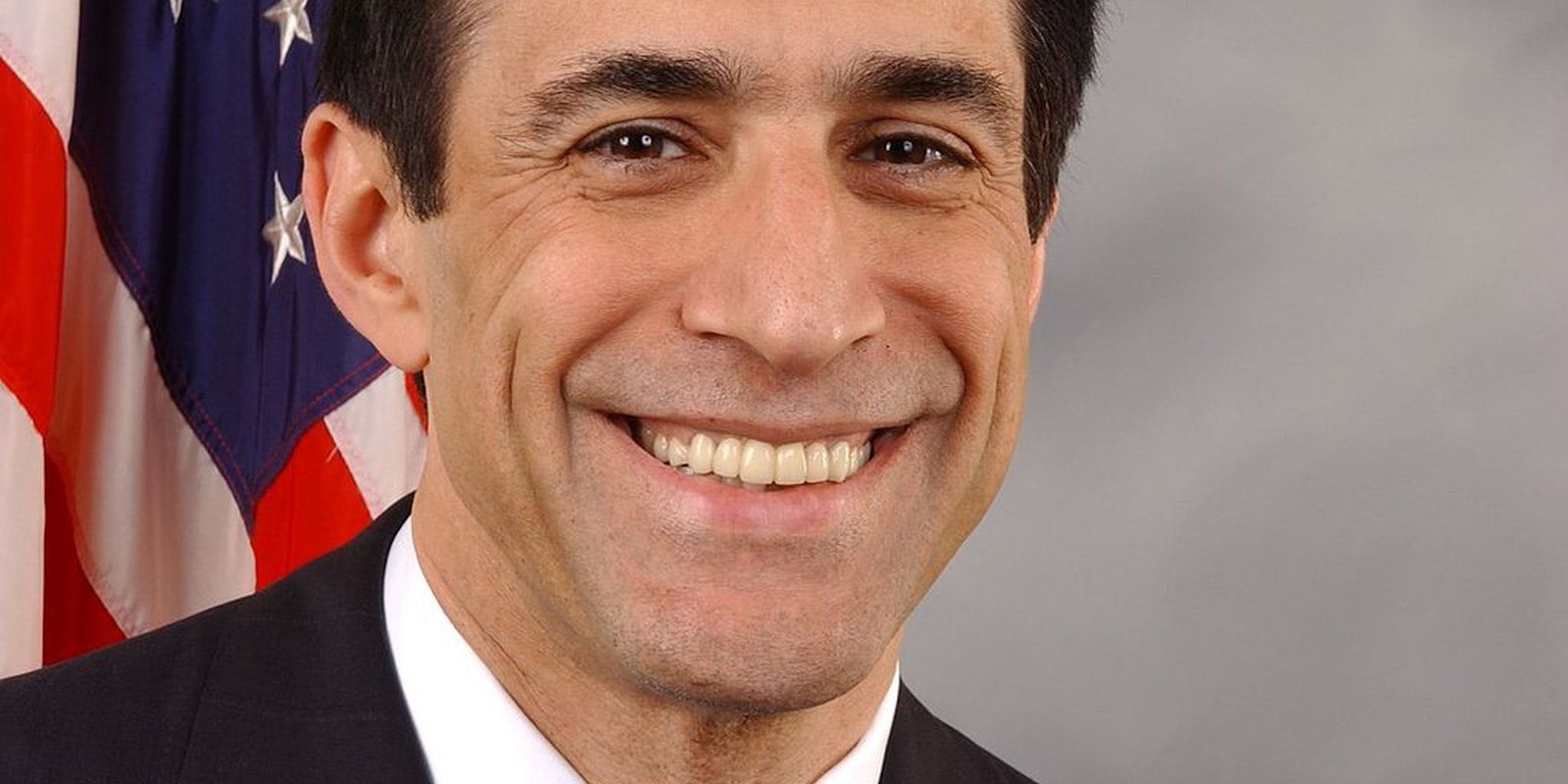In 2012, the Internet has faced what seems like a neverending string of restrictive legislation in Congress. Finally, some members of Congress are pushing back with an Internet bill of rights.
Rep. Darrell Issa (R-CA) published an early draft of a “Digital Citizen’s Bill of Rights” Monday. It’s simple—ten one-sentence points that aim to create a framework of rights to protect the Internet and its users. An easy comment system allows users to voice their opinions on each point.
In an interview Monday at the Personal Democracy Conference in New York City, Issa touted his new initiative. He’s “particularly enthused about” his sixth point, which reads “digital citizens have a right to freely share their ideas, lawful discoveries and opinions on the internet.”
He gave a brief history lesson on how Congress has traditionally responded well to pro-copyright lobbyists, but with the advent of the Stop Online Piracy Act (SOPA), traditional ideas of copyright and the idea of a free Internet are now at odds.
Issa has long tried to establish himself as a pro-Internet lawmaker who’s ready to fight lobbyists. In March, he created a Reddit IAmA where he called himself an “Internet defender.”
“I fought to defeat SOPA and PIPA because they were bad pieces of legislation” and in the guise of protecting copyright, “went too far in harming the Internet,” he wrote on the site.
Somewhat controversially, Issa’s also in favor of the Cyber Intelligence Security Protections Act (CISPA), a bill designed to protect American interests from hacking attacks, but which has been criticized as giving the government overwhelming powers to spy on its own citizens.
“Privacy” is one of the Bill of Rights’ ten items, albeit defined loosely: “Digital citizens have a right to privacy on the internet.”
Issa isn’t the first major politician in America to call for a Bill of Rights for Internet users. President Obama created a so-called Privacy Bill of Rights in February, which he’s lobbying to bring to the Senate.
To that end, Issa might be able to introduce his bill first: he’s a member of the House, and he seems to have a number of allies in Congress. His proposed OPEN Act, a more Internet-friendly alternative to copyright legislation like SOPA, already has 25 supporters in the House and four in the Senate.
Photo via Wikimedia Commons
